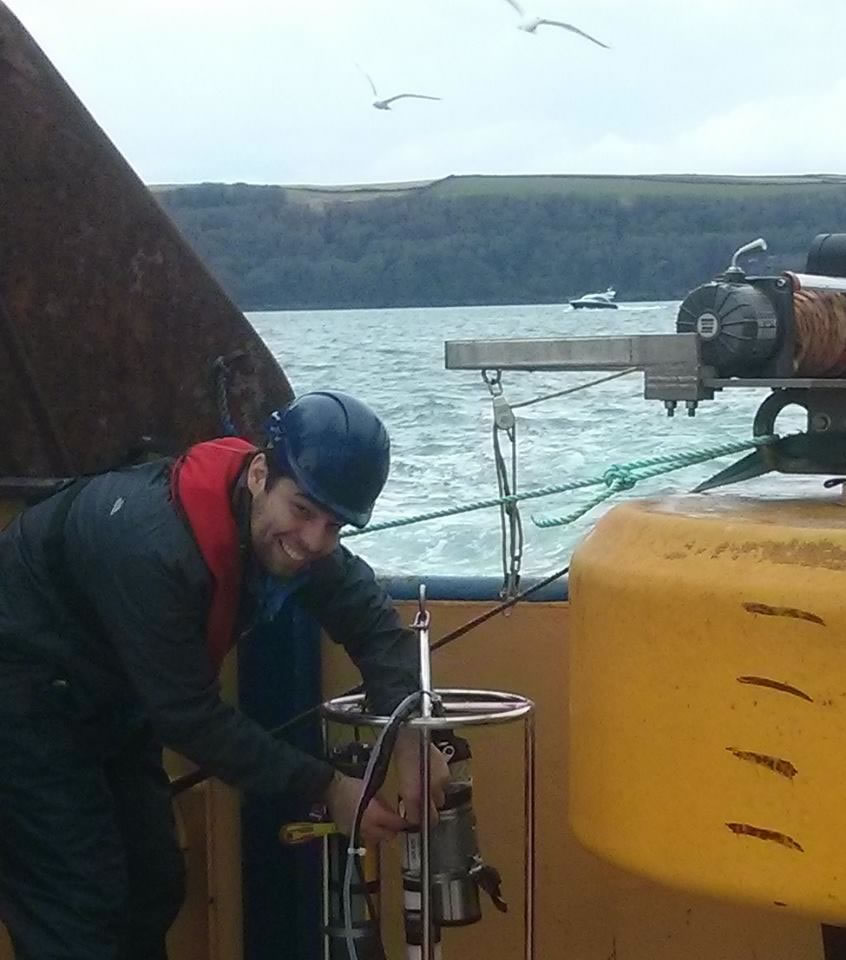Effects of near surface ocean gradients upon shelf sea air/sea gas exchange estimates
I started my NERC funded PhD student in the Cycling in the Sunlit Ocean (CSO) group at the Plymouth Marine Laboratory (PML) in October 2013 under the supervision of Thomas Bell (PML), Ute Schuster and Andre Watson (University of Exeter).
My project is on near surface gradients in the surface ocean. My focus is on understanding the interactions between physical parameters such as temperature and salinity with carbon chemistry parameters such as oceanic pCO2. The project could have strong implications on those working in air-sea gas exchange and thus our understanding of the climate system.
-

- Richard Sims at sea onboard the Plymouth Quest testing his sampling apparatus.
Since starting at PML I have designed and built my own sampling apparatus to make measurements of the surface ocean. This involved modifying a buoy to becoming a sampling platform from which I could deploy my equipment at different depths. One of the most enjoyable aspects of doing my PhD at PML is that I have had the opportunity to go to sea on the Plymouth Quest which is the boat owned and operated by PML. I have had the opportunity to test my equipment on the Quest; it was found the design gave an unprecedented vertical resolution and thus promises exciting future results.
I have attended the Oceanflux conference in Ifremer France and the Plymsef young scientist conference in Plymouth; I plan to present my work at the Challenger conference this year. Next year I will be involved in several cruises in the Celtic Sea as part of the UK Shelf Sea Biogeochemistry programme, it is here I will obtain the majority of the data for my thesis. My project is tied to the SSB programme which is a big community driven project to understand shelf sea chemistry around the UK.
I’ve learnt a lot from being involved with such a big consortium of scientists and expect many future collaborations as part of the project.
